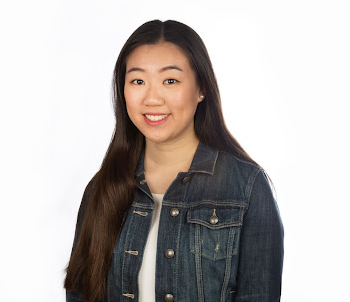From bench to bedside to back to school, Lan He wants to further her education so she can affect changes in health-care policy
22 November 2022

Lan He. Photo supplied.
Lan He has been following her passion since high school — first in chemistry, then in nursing. She graduated from the University of Alberta in 2019 with a bachelor of science in chemistry, followed by a BScN in Nursing after degree in 2021. She practised as a registered nurse in public health and postpartum before her love of people and desire to help improve their lives led her back to the Faculty of Nursing.
We caught up with He to learn more about why she decided to pursue graduate studies and to ask her what she would say to other nurses who might be considering returning to school.
What were you doing before coming to the U of A to study?
I decided to go straight from high school to university to further my interest in chemistry, which my high school chemistry teacher had instilled in me. Chemistry was my favourite subject, as we were all experiencing it without seeing it. Everything that we know in life is composed of molecules and the reactions that are created with interactions. Entering university, I knew that I wanted to gain further knowledge of chemistry.
What led you to the field of nursing?
I worked in a chemistry lab, which was very interesting as I learned not only about the science but also about myself. Often my lab work consisted of testing out samples and passing results along to whom it concerned. I wondered, “Where do these samples go? What do these results mean to the person involved?” I decided to go into nursing to find out. Nursing allowed me to understand and interpret the meaning behind the science — not just the numbers, but the human experience.
In your experience, what’s the most rewarding aspect of nursing? And the most challenging?
The most rewarding aspect of nursing is creating relationships with people and having the honour of joining them on their health journey. For me, nursing is unique as it combines both the arts and the sciences. Nurses exist where people are at their most vulnerable, where we have the honour of entering this sacred space.
The most challenging aspect of nursing was compassion fatigue and burnout. Although I only worked one year as a full-time nurse, I recognized that with the pressure of the pandemic, this put even more pressure on nurses to become more efficient with time and resources. I felt that it came with the cost of not forming as strong relationships with those we were caring for. Hopefully as time goes on, this will change!
What was it like working as a registered nurse in public health and postpartum nursing?
I absolutely loved working in postpartum nursing as this was what I did for my preceptorship! It was such a lovely transition from graduate nurse to registered nurse as everything was familiar to me. Working with moms and babies in the hospital setting and helping them transition to home encouraged me to also work in public health nursing. Postpartum and public health nursing are closely tied to one another, and I loved working in both! I learned from the patients and also about myself as a nurse.
What made you decide to pursue a master’s degree in nursing?
Working in the areas of postpartum and public health nursing with immigrant women led me to recognize the unique challenges they face compared to our general population. I want to learn more about these specific challenges and hopefully through a master’s project, create findings for health-care decision-makers to change policies for better programs and services for this population.
Can you tell us about your area of research?
My area of research is with older immigrant women and physical activity. Although I am not 100 per cent sure what my research question will be as I am still in my first year of graduate school, my question will relate to the unique challenges that older immigrant women face when pursuing physical activity.
What do you hope to do once you graduate with a master’s degree?
I am not completely sure yet, but hopefully continue to work in both nursing research and bedside nursing!
Can you tell us more about the Careers committee of Alumni Council and what it means to you to serve in this capacity?
The Careers committee helps with awards and funding for U of A alumni who need to pursue professional certifications or services that will advance their career. As a current student, I understand the importance of financial support while pursuing higher education.
What advice would you give prospective students considering graduate studies in nursing?
It all begins with a question or topic of interest to you. If this is something you are passionate about, I suggest looking at the U of A nursing professors profiles to look at their research. Look for someone researching the same topic that you are interested in and send them an email! I personally reached out to my current supervisor and volunteered with their research group for a while before committing to the master’s program so I could have a peek at what it would look like.